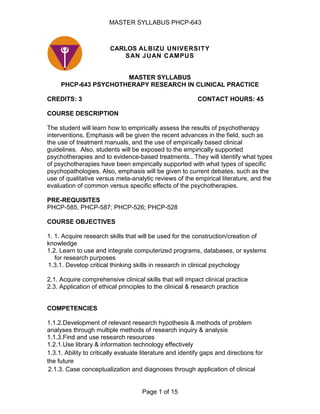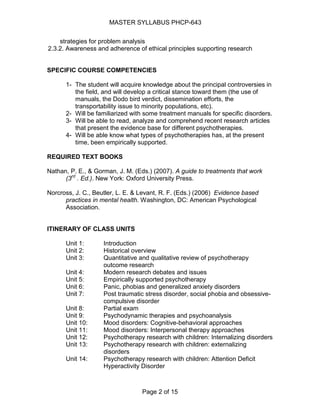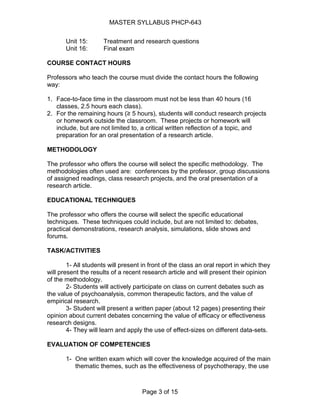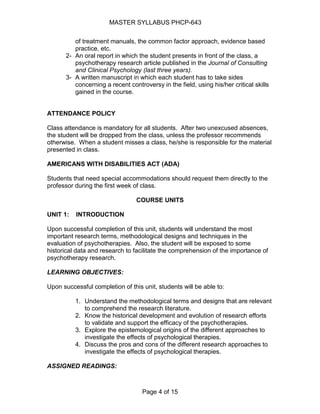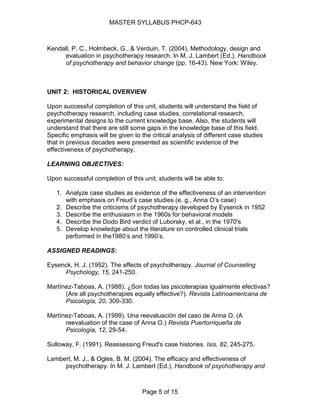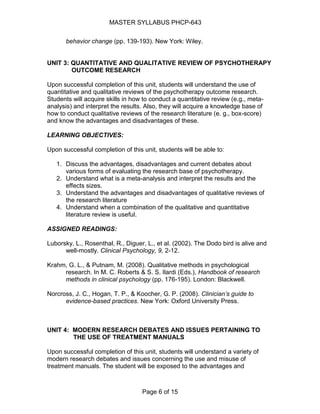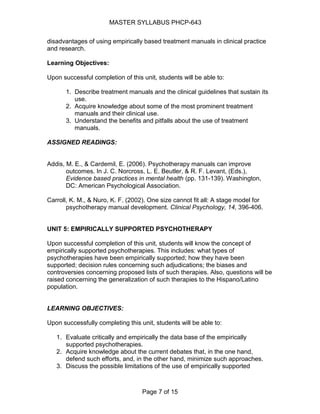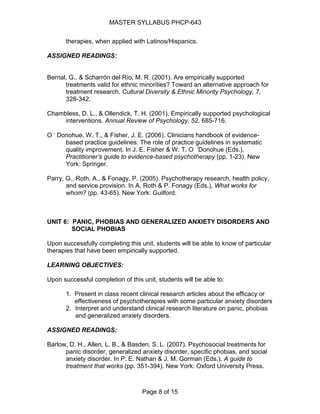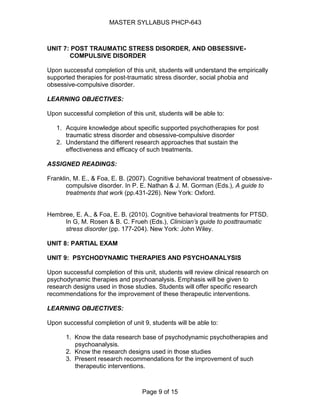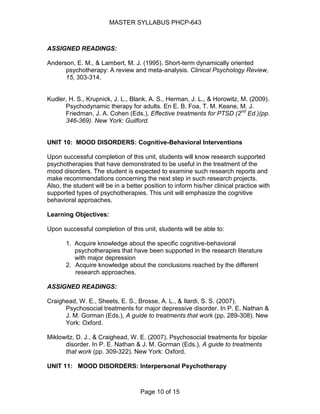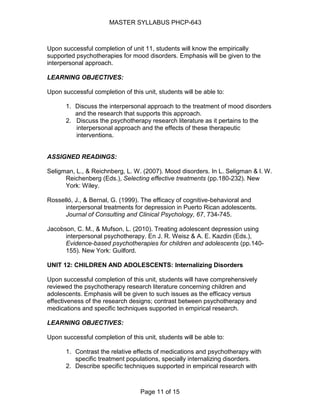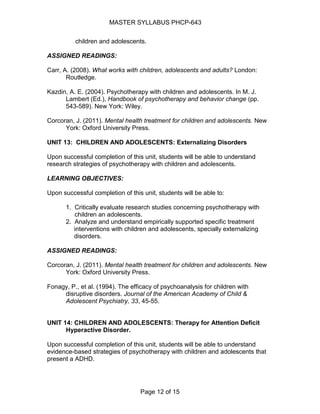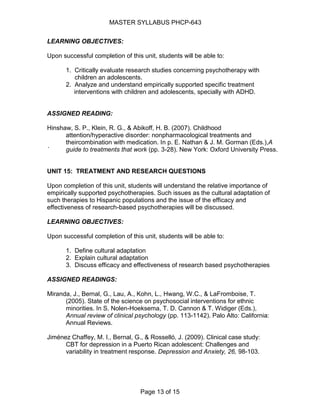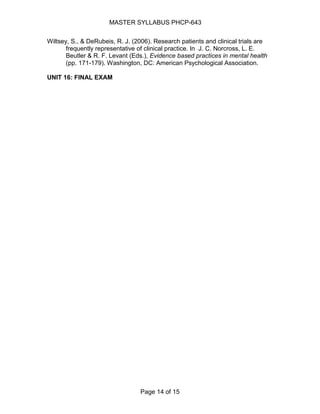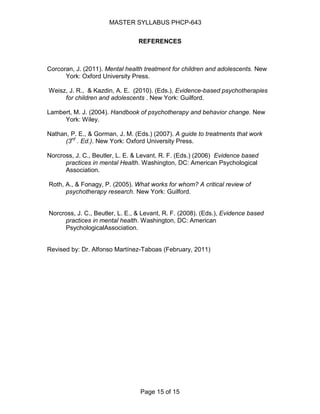This document provides information on a course titled "Psychotherapy Research in Clinical Practice" including:
- The course aims to teach students how to empirically assess psychotherapy interventions and expose students to recent advances in the field including empirically supported psychotherapies.
- The course objectives are for students to develop research and critical thinking skills to apply to clinical practice and acquire comprehensive clinical skills to impact practice.
- The course will cover topics like quantitative and qualitative reviews of psychotherapy research, debates around issues like using treatment manuals, and empirically supported therapies for disorders like anxiety, PTSD, and depression.
